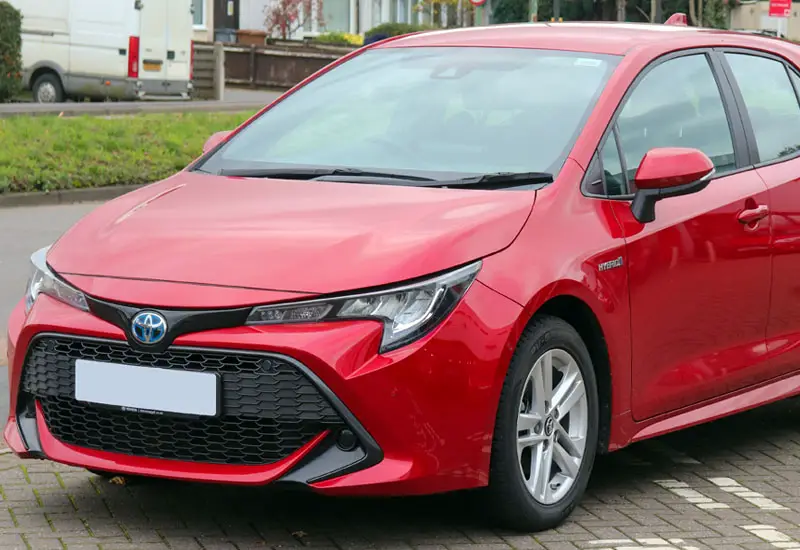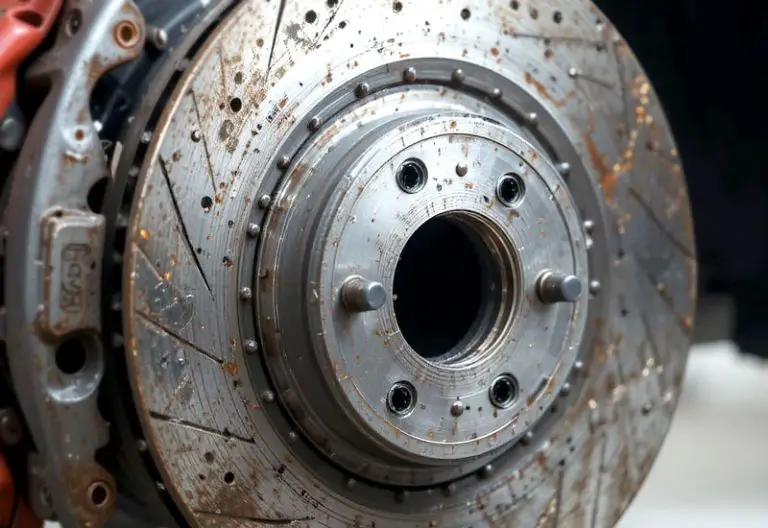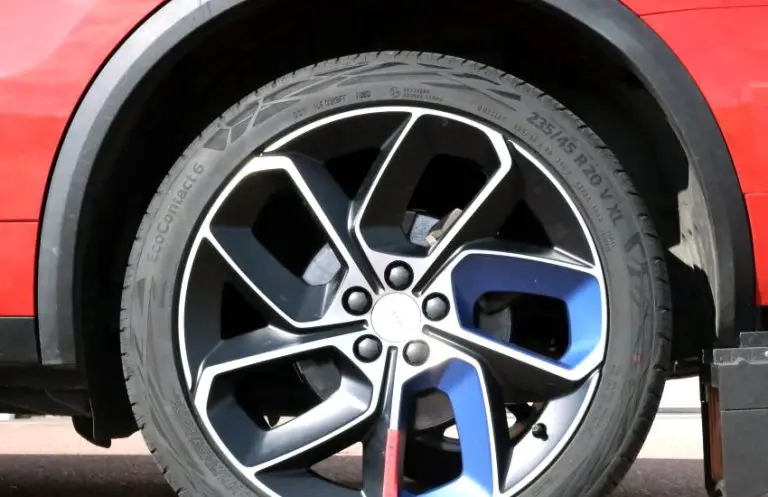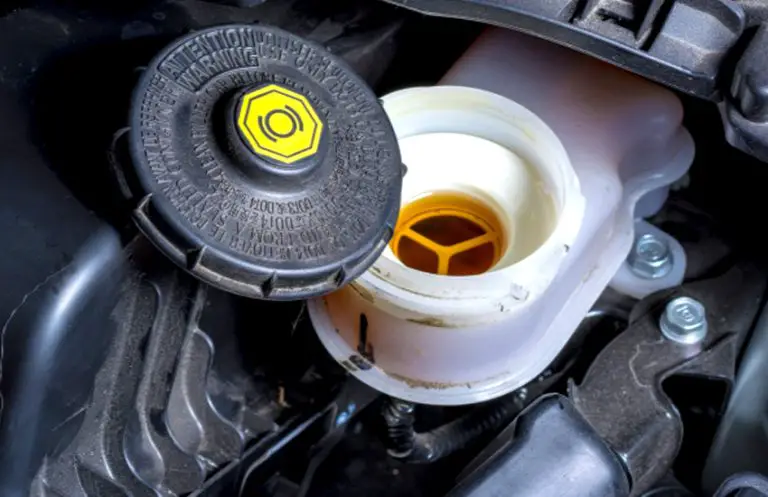Have you ever been frustrated by a police officer tailgating you, driving too closely for comfort? Perhaps you’ve wondered, “Can I perform a brake check to make them back off?” It’s a thought that many drivers may have entertained, especially during tense or frustrating moments on the road. But is it legal? Is it safe? Most importantly, what consequences might you face if you attempt such a maneuver?
In this article, we’ll explore the question of whether you can perform a brake check on a police officer, looking at the legal, ethical, and practical aspects of the situation. We’ll also examine what a brake check is, why it might be tempting to do one, and what could happen if you go ahead with it. By the end of this post, you’ll understand not just the risks involved, but also the better ways to handle such a situation. Let’s dive in!

What is a Brake Check?
A “brake check” refers to deliberately applying your brakes suddenly in order to signal to the car behind you that they are following too closely. Typically, this action is used in non-emergency situations when a driver feels intimidated or threatened by a tailgater. The idea is that by braking abruptly, the tailgater will be forced to slow down or create some distance between your car and theirs.
Although brake checking is a tactic used by some drivers to deal with tailgating, it is a dangerous maneuver that can lead to accidents, road rage, or legal trouble. It’s important to understand that brake checks are not a responsible or recommended driving practice. This is especially true when interacting with other drivers, such as police officers.
The purpose of a brake check might seem straightforward: to force the driver behind you to give you space. But while this action may seem like a simple and even satisfying way to handle tailgating, it can have severe consequences—especially when the driver you’re dealing with is a police officer.
So, can you perform a brake check on a police officer? Let’s break it down.
Legal Implications of Brake Checking a Police Officer
When it comes to the law, brake checking is considered a form of reckless or aggressive driving, regardless of whether the other driver is a regular citizen or a police officer. To understand why this is, let’s explore the legal framework that governs such actions on the road.
Reckless Driving Laws
Reckless driving is defined as operating a vehicle in a way that shows a willful disregard for the safety of others. A brake check—especially when done intentionally and suddenly—falls under this category. Whether or not the driver behind you is a police officer, performing a brake check can be considered reckless because it forces the other driver to react quickly and can easily lead to accidents or dangerous situations.
In many states, reckless driving is classified as a criminal offense, and if a police officer determines that your brake check put others at risk, you could be cited, fined, or even arrested. The consequences would likely be more severe if the brake check results in an accident or injury, which is a real possibility when engaging in such a risky driving tactic.
Traffic Laws Specific to Police Officers
Police officers on the road have specific rights and duties that differ from regular drivers. They are generally not subject to the same traffic laws as civilians when they are in pursuit of a suspect or responding to an emergency. For instance, police vehicles can legally speed, run red lights, or follow vehicles closely when they are performing their official duties.
Because police officers are often trained to maintain high levels of attention while driving, a brake check could be seen as an attempt to hinder their ability to perform their duties. Such actions could result in more serious charges or legal trouble. It’s important to note that police officers are often well-trained in defensive driving techniques, so a brake check may not even have the desired effect—however, it could escalate tensions and lead to undesirable consequences.
Liability in the Event of an Accident
If a brake check leads to an accident, you could be held liable, even if the other driver is a police officer. Depending on the circumstances, you may face civil and criminal charges. In cases where the officer is injured or their vehicle is damaged, the penalties could be much more severe. Lawsuits, fines, and increased insurance premiums are just a few of the potential financial consequences.
Furthermore, in a scenario where you engage in a brake check on a police officer and it causes an accident, it’s possible that you could face charges for obstruction or interference with law enforcement. These charges may be added to any reckless driving or negligence charges you already face. In short, engaging in such a maneuver could result in a long list of legal complications.
Is Brake Checking a Police Officer Ever Justified?
While brake checking is generally discouraged, there may be certain extreme circumstances where it is justified. For example, if a police officer is tailgating you in a manner that feels threatening or dangerous, it’s understandable that you might feel the urge to take some sort of action. However, before considering a brake check, it’s important to understand the following:
- Safe Alternatives: If you feel unsafe due to a police officer’s driving behavior, the best course of action is to pull over in a safe location and allow the officer to pass. If you feel uncomfortable or threatened, it is always better to prioritize your safety and let the officer proceed.
- Complaint Procedures: If you believe that a police officer is driving recklessly, you can file a complaint with the police department after the incident. Attempting to address the situation by brake checking the officer is not only dangerous but could be seen as confrontational or aggressive, which might only make the situation worse.
In conclusion, no matter the circumstances, brake checking a police officer is never a good idea. It’s not only unsafe but could lead to significant legal and personal consequences.
What to Do Instead of Brake Checking a Police Officer
Instead of engaging in a brake check, there are safer and more effective strategies you can employ when you feel uncomfortable with a police officer’s driving behavior.
1. Maintain a Safe Speed
If a police officer is tailgating you or driving too closely for comfort, it’s important to maintain a steady speed. Avoid sudden acceleration or braking, as these actions can confuse the officer and lead to unnecessary tension. If you are already driving at a safe and legal speed, there’s no need to change your driving behavior. Consistency is key to keeping yourself and other drivers safe on the road.
2. Pull Over When Appropriate
If the officer is tailgating you in a way that makes you feel unsafe, it’s best to pull over to the side of the road. This gives the officer space to pass or continue with their business, and it ensures that you are not obstructing their ability to drive. Make sure to pull over in a safe area, such as a parking lot, a wide shoulder, or a rest area. Once you are safely off the road, you can allow the officer to move on.
If the officer is pulling you over for a reason, remain calm and compliant. Follow the instructions given to you and ask questions politely if needed. If you feel that the officer’s behavior is inappropriate or unlawful, you can file a formal complaint with the police department after the encounter.
3. Use Your Turn Signals and Mirrors
If the officer is driving too closely, using your turn signals and mirrors to ensure you have clear visibility can help avoid any accidents. If it is safe to change lanes or move over to the side, do so gradually and signal your intentions. By using these basic driving practices, you can help reduce the chances of an accident and allow the officer to safely pass.
4. Stay Calm and Avoid Confrontation
Road rage and aggressive driving only escalate dangerous situations. If you feel threatened or uncomfortable, staying calm is the best way to diffuse the situation. Avoid making any sudden or aggressive moves, and focus on your own safety. If you are pulled over, try to remain composed and polite. Being confrontational with a police officer can escalate tensions unnecessarily.
5. Document the Incident
If you feel that an officer has been driving recklessly or has made you feel unsafe, document the incident after it occurs. Record details such as the time, location, officer’s vehicle number, and the behavior that made you feel uncomfortable. This information can be helpful if you choose to file a complaint with the police department later.
In most cases, however, it’s better to avoid any actions that might be interpreted as confrontational, including brake checking. Staying calm, pulling over when necessary, and filing a complaint afterward if needed is the best course of action.
Are These Questions in Your Mind?
Is it illegal to brake check a police officer?
Yes, brake checking a police officer is considered reckless driving and is illegal in most jurisdictions. It could lead to fines, points on your driving record, or even criminal charges.
Can a police officer brake check me?
While police officers may drive aggressively in certain situations, they are trained to maintain control of their vehicles. If you feel threatened, it’s important to stay calm and pull over safely.
Do I have the right to challenge a police officer’s driving behavior?
You can file a formal complaint with the police department if you believe an officer’s driving was unsafe.
Can I perform a brake check if the police officer is tailgating me?
Even if a police officer is tailgating you, performing a brake check is not advisable. It is considered reckless driving and can escalate the situation. Instead, it’s safer to maintain your speed, pull over when possible, and allow the officer to pass.
Is it safe to brake check anyone, not just police officers?
No, brake checking anyone on the road is never safe. Sudden braking can cause accidents and endanger everyone on the road. It’s important to handle tailgaters or aggressive drivers with caution by maintaining a safe distance and pulling over if necessary.
Do I need to report an officer for aggressive driving?
If you feel that an officer’s driving is unsafe or aggressive, it’s a good idea to report it to their department. Provide as many details as possible, such as the time, location, and any other identifying information about the officer or their vehicle.
Can a police officer pull me over for brake checking?
Yes, if you brake check another driver, including a police officer, they can pull you over. Brake checking is considered a form of reckless driving and could result in a citation, warning, or even arrest, depending on the situation.
Is it okay to brake check a police officer if they are speeding?
Even if a police officer is speeding, it is not advisable to brake check them. While police officers have the right to exceed speed limits in certain situations, a brake check could cause an accident. Instead, you should pull over and allow them to pass safely.
Can a police officer charge me for obstruction if I brake check them?
Yes, a police officer could charge you with obstruction or interference with law enforcement if your actions impede their ability to carry out their duties. This charge could be in addition to reckless driving or other related offenses.
Do I have the right to confront a police officer on the road?
While you do have the right to file a complaint about an officer’s behavior, it’s best to avoid confrontation on the road. If an officer’s driving is making you feel uncomfortable, pull over safely, and report the incident after the fact.


